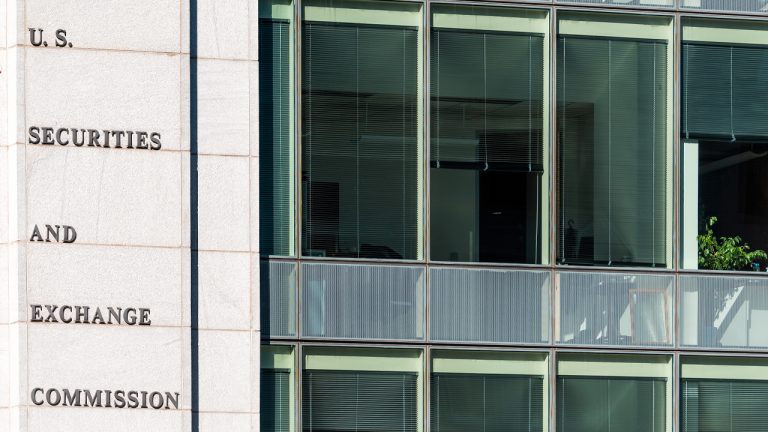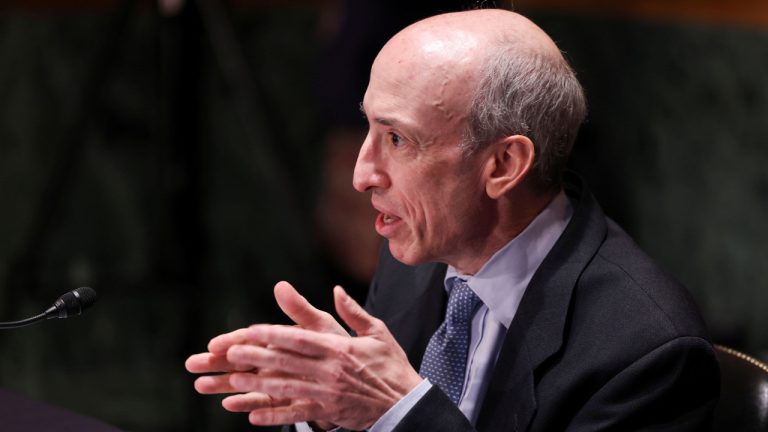 2023 is shaping up to be a painful year for the U.S. Securities and Exchange Commission (SEC) as it finds itself entangled in battles with the ever-evolving and innovative cryptocurrency industry. From Ripple to Coinbase and Tron, the SEC faces fierce opposition with potentially huge consequences. The following opinion editorial was written by Joseph Collement, […]
2023 is shaping up to be a painful year for the U.S. Securities and Exchange Commission (SEC) as it finds itself entangled in battles with the ever-evolving and innovative cryptocurrency industry. From Ripple to Coinbase and Tron, the SEC faces fierce opposition with potentially huge consequences. The following opinion editorial was written by Joseph Collement, […] Recently, Gary Gensler, the chairman of the U.S. Securities and Exchange Commission (SEC), expressed his opinion in a detailed interview with New York Magazine’s Intelligencer regarding why he believes crypto assets other than bitcoin are securities. However, Stuart Alderoty, Ripple’s chief legal officer, argues that Gensler must “recuse himself from voting on any enforcement case […]
Recently, Gary Gensler, the chairman of the U.S. Securities and Exchange Commission (SEC), expressed his opinion in a detailed interview with New York Magazine’s Intelligencer regarding why he believes crypto assets other than bitcoin are securities. However, Stuart Alderoty, Ripple’s chief legal officer, argues that Gensler must “recuse himself from voting on any enforcement case […] Software engineers and members of the development lab Ripplex want to create a cross-chain bridge for the XRPL network to bolster cross-chain transfers between different blockchain networks. According to a recent Github draft, the proposal outlines how the cross-chain bridge could function and suggests ways to prevent transaction replay. Ripplex Dev Proposes XRPL Cross-Chain Bridge […]
Software engineers and members of the development lab Ripplex want to create a cross-chain bridge for the XRPL network to bolster cross-chain transfers between different blockchain networks. According to a recent Github draft, the proposal outlines how the cross-chain bridge could function and suggests ways to prevent transaction replay. Ripplex Dev Proposes XRPL Cross-Chain Bridge […]
Attorneys representing Avraham Eisenberg argued he had already settled his dispute with Mango DAO and shouldn't have to pay back any more funds.
The alleged exploiter of the decentralized finance protocol Mango Markets, Avraham Eisenberg, is seeking to keep his share of crypto gained from his so-called “highly profitable trading strategy.”
On Feb. 15, attorneys for Eisenberg filed a motion in a New York District Court objecting to a lawsuit from Mango that asks for $47 million in damages plus interest starting from the time of Eisenberg’s October attack, whidrained around $117 million from the protocol.
The lawyers argued that Eisenberg shouldn’t need to pay back any more funds to the DeFi platform due to a settlement agreement that he reached with Mango DAO, arguing that the “matter was settled.”

A governance proposal was passed by the Mango DAO following the draining of its treasury that saw Eisenberg keep a portion — $47 million — of the pilfered funds as a bug bounty along with a stipulation that Mango wouldn’t pursue legal action.
“Eisenberg transferred funds totaling approximately $67 million to Mango Markets,” the attorneys wrote, adding:
“Weeks later, eligible Mango Markets’ members received reimbursement from the Mango Markets treasury. At that point, all involved considered this matter closed and Mr. Eisenberg heard nothing further from Mango Markets.”
Mango, however, said in its suit that the settlement should be voided as it was made “under duress” and alleged Eisenberg “was not engaged in lawful bargaining.”
Eisenberg’s attorneys rebuffed these claims, saying the “improper three-month delay” for Mango filing its suit “undermines any alleged irreparable harm.” The lawsuit, they say, aimto “take advantage” of Eisenberg’s December arrest in Puerto Rico by United States authorities.
Related: Alleged Mango Markets exploiter waives bail during hearing in federal court
Eisenberg was charged by the Federal Bureau of Investigation with commodities fraud and manipulation.
He also faces a lawsuit from the U.S. Commodity Futures Trading Commission that alleges market manipulation and a suit from the Securities and Exchange Commission for violating securities laws relating to anti-fraud and market manipulation.
Eisenberg has previously stated his trades on Mango were “legal open market actions, using the protocol as designed,” and called his purported attack a “highly profitable trading strategy.”

Crypto exchange Coinbase has filed documentation asking permission to help Ripple Labs in its ongoing legal battle with the SEC.
United States-based crypto exchange Coinbase has become the latest organization to stand behind Ripple Labs in its legal battle against the Securities and Exchange Commission (SEC), which could wrap up as soon as the first half of 2023.
Paul Grewal, Coinbase’s chief legal officer in a series of tweets on Oct. 31 said the exchange had asked the presiding judge for permission to file an amicus brief, saying the case was a “textbook” definition of “just how critical fair notice is.”
Earlier today, @coinbase asked Judge Torres for permission to file an amicus brief in the SEC case over XRP. Our point in pretty simple: this is a textbook case of just how critical fair notice is any reasonable notice of due process under law. 1/3 pic.twitter.com/qhSSGrNgJK
— paulgrewal.eth (@iampaulgrewal) October 31, 2022
An amicus brief, known as a “friend of the court,” is a legal document containing advice or information relating to a court case from an organization or individual that is not directly involved in the case.
Grewal added that a fundamental protection under the U.S. Constitution is that authorities can’t “condemn conduct as a violation of law without providing fair notice that the conduct is illegal.”
“By suing sellers of XRP tokens after making public statements signaling that those transactions were lawful, the SEC has lost sight of this bedrock principle,” he added.
If approved, Coinbase will join the ranks of the non-profit organization Investor Choice Advocates Network and crypto mobile app SpendTheBits which were granted permission to file amicus briefs in October.
Related: ‘Well worth the fight’ — Ripple counsel confirms Hinman docs are in their hands
The filing also comes on the same day cryptocurrency lawyer John Deaton filed a motion seeking permission to submit an amicus brief on behalf of the XRP “decentralized community.”
It also follows days after crypto advocacy group the Blockchain Association also announced its support for Ripple on Oct. 28 by announcing it had filed its ow amicus brief, noting that SEC chairman Gary Gensler’s views on securities laws could have “devastating effects” on the space.
Ripple Labs has been caught up in a nearly two-year-long legal saga with the SEC that regards the sale of its Ripple (XRP) tokens as unregistered securities sales.
Ripple CEO Brad Garlinghouse on an Oct. 11 panel at DC Fintech Week said he thinks the case could be wrapped up by the half of 2023 but admitted it would be hard to predict an exact end date.